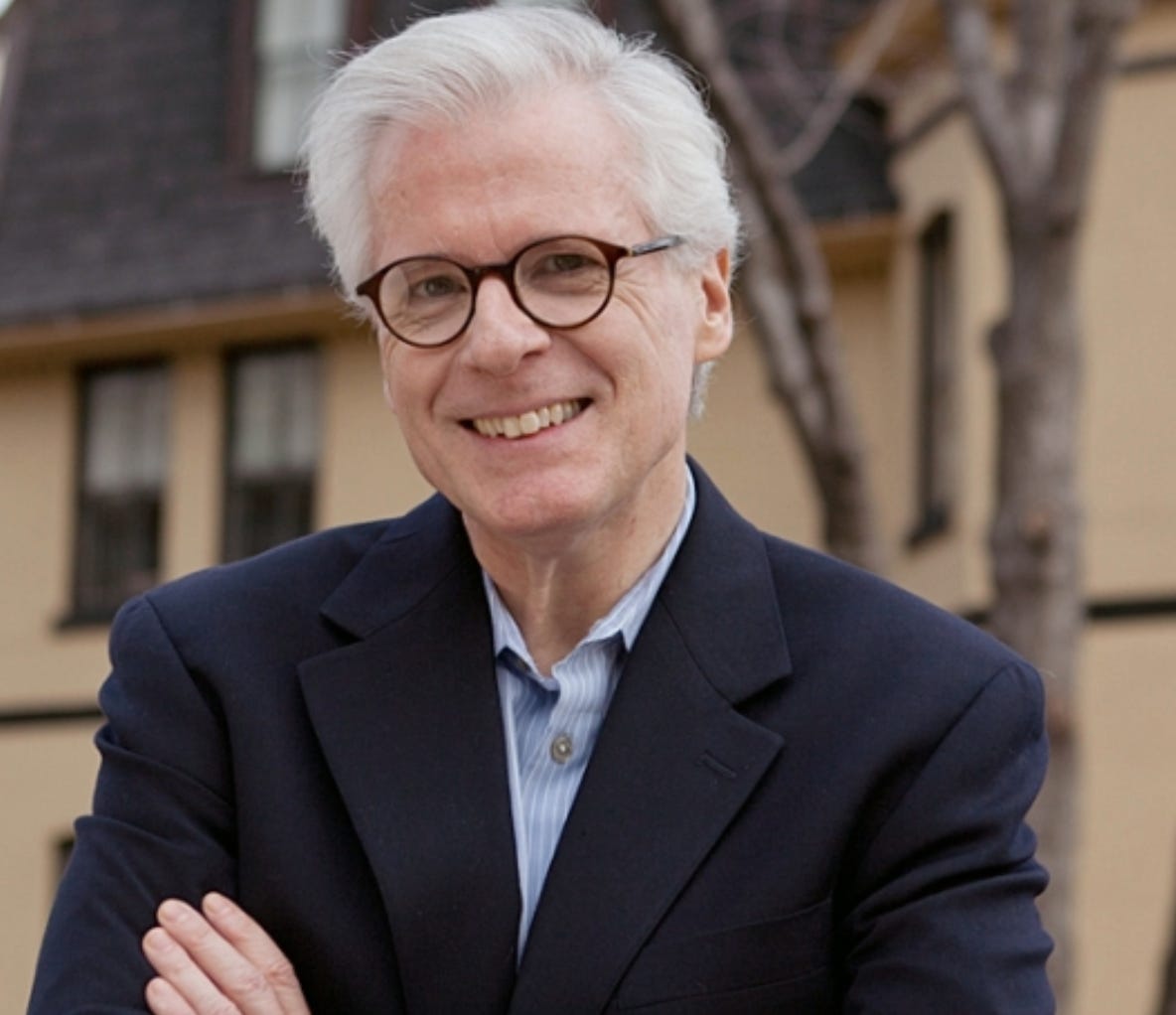“After the Opera” by Joseph Stroud from Of This World: New and Selected Poems. © 1998 by Joseph Stroud.
ORIGINAL TEXT AND AUDIO - 2016
It’s the anniversary of the first scheduled radio broadcast in the United States, in 1920. Station KDKA in Pittsburgh broadcast the results of the presidential election in which Warren G. Harding defeated James M. Cox. The broadcaster read telegraph ticker results over the air as they came in, and the few people in the eastern part of the country who owned radios could tune in to listen. The 1920 election was also the first election in which women were allowed to vote, following the passage of the 19th Amendment to the U.S. Constitution.
It was on this day in 1960 that Penguin Books was found not guilty of obscenity in a landmark trial over the book Lady Chatterley’s Lover, a novel by D.H. Lawrence. It’s the story of a young aristocrat, Lady Chatterley, whose husband is paralyzed and impotent, and she has an affair with her gamekeeper.
Today is the birthday of the monarch who is popularly believed to have said, “Let them eat cake.” That’s Marie-Antoinette, born in Vienna (1755). She was the 15th child of Maria Theresa, the Hapsburg empress, and Emperor Francis I.
In order to strengthen the alliance between her Hapsburg relatives and the French Bourbons, her mother betrothed her to Louis-Auguste, grandson of King Louis XV, when she was 10 years old. Three years later, the king sent a tutor to Vienna to educate the young bride-to-be. He reported that she was of above-average intelligence, but lazy and somewhat frivolous. “Her character and her heart, are excellent,” he added.
Marie-Antoinette didn’t meet her future husband until the day before they were married, when she was 14 and Louis was 15. She was terribly unhappy for the first few years of her marriage, and suffered from bitter homesickness, crying over every letter her mother sent her. Word got around soon after the wedding that the young couple had never consummated their marriage after the wedding. Finally — after seven years and some coaching from Marie-Antoinette’s older brother, Joseph, who called them “two complete blunderers” — Louis XVI and his queen made the marriage official. The first of their four children was born the following year.
Although they were genuinely fond of each other, Marie-Antoinette and Louis XVI could hardly have been more different in temperament. The king was an indecisive introvert who preferred to spend his free time alone, reading or metalworking. In contrast, the queen was a vivacious extrovert who loved parties, gambling, and the theater. Easily bored, and given very few official duties, she spent lavishly on elaborate amusements, including a miniature farm that she ordered built on the grounds of Versailles so that she and her ladies could pretend to be shepherdesses and milkmaids. She ordered 300 new gowns every year. Her hairstyles were extreme and often included props. She commissioned a wig featuring a serpent struck by a club — representing the victory of science over evil — to celebrate her success in convincing the king to be vaccinated against smallpox.
Royal excesses were nothing new, but France was in debt due in part to its involvement in the American Revolution. The monarchy and nobility paid almost no taxes, so the economic burden fell on the shoulders of the commoners, who were hit hard by crop failures and food shortages. Even though motherhood and maturity had dampened much of Marie-Antoinette’s extravagance, she still became the scapegoat for everything that was wrong with France. Pamphlets began circulating, accusing the queen of adultery, out-of-control spending, and corruption.
Louis XVI was too indecisive to take action, so Marie-Antoinette stepped in, sending coded letters to foreign powers and making secret arrangements for her family to flee in 1791. The plans were thwarted when revolutionaries captured the royal family halfway to the border, and they became the prisoners of the Revolutionary government. In September 1792, the National Convention declared France a republic and abolished the monarchy. Louis was found guilty of treason and executed the following January; Marie-Antoinette was the subject of a two-day show trial, at which she was accused and convicted of treason and the sexual abuse of her son. She was beheaded in October 1793. The priest who heard her last confession implored her to have courage. She responded, “Courage? The moment when my ills are going to end is not the moment when courage is going to fail me.”
Marie-Antoinette never said “Let them eat cake.” The phrase was first penned by Jean-Jacques Rousseau, years before Marie-Antoinette ever came to France; he was describing another foreign-born French queen, Marie-Therese of Spain, who was the wife of Louis XIV.
Today is the birthday of American writer Thomas Mallon (1951), whose books of historical fiction, like Watergate (2012) and Finale (2015), examine American politics and culture through the lens of the American presidency. Mallon once joked, “I seem to only want to see presidents at the lowest points in their fortunes.”
Mallon was born in Glen Cove, New York, and grew up on Long Island. His father was a salesman and Mallon describes his youth as “the kind of happy childhood that is so damaging to a writer.”
He made his living as a journalist for a long time and had a popular column called “Doubting Thomas” in the magazine Gentlemen’s Quarterly. He once wrote an essay in The New Yorker that dared to question the novel To Kill a Mockingbird’s place in classic literature, calling the book “moral Ritalin.” He received reams of hate mail, but stood by his claim. “I wouldn’t put it in front of my kids as great literature.”
His first book, A Book of One’s Own (1984), was a nonfiction account of famous diarists like Samuel Pepys and Anaïs Nin, and Mallon decided to try his hand at writing a novel. He said, “Writing books is too good an idea to be left with authors.”
Mallon calls himself “a supposed literary intellectual, homosexual, and Republican,” with a penchant for research and a George Bush bobblehead doll on his desk. He found himself drawn to writing fiction about politics and history.
His novel Henry and Clara (1994) is about the young couple who accompanied Abraham Lincoln to Ford’s Theatre on the night of his assassination. Mallon calls Henry and Clara the template for his future historical novels. He’d been researching Lincoln’s assassin, John Wilkes Booth, and he kept running across references to Henry and Clara Rathbone. Mallon said: “I found myself writing about minor characters, either real or invented, who were on the fringes of great historical events. I would tell history from the point of view of bystanders.”
Be well, do good work, and keep in touch.®
For your bookshelf:






The remark "let them eat cake" puzzled me for years. As a kid I thought "what's wrong with that? Hungry people would love to eat cake, wouldn't they?" Turns out that the word "cake" in those days referred to food residue scraped from the insides of cooking pots - like the baked-on stuff left at the bottom of your skillet after you, say, fry eggs. Palace kitchen workers used to throw "cake" through the gates of Versailles to the hungry gathered outside hoping for scraps. Regardless of who said it, the saying expresses a cruel attitude toward the poorest among us.
Garrison,
Louis XVI was 5 generations removed from his great, great; great grandfather the mighty Louis XIV, the Sun King,